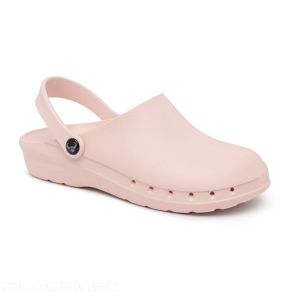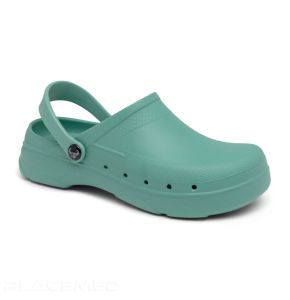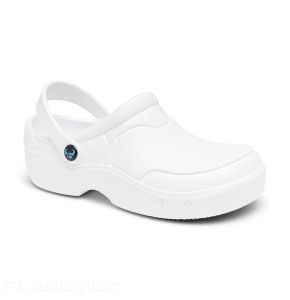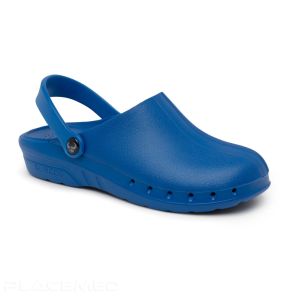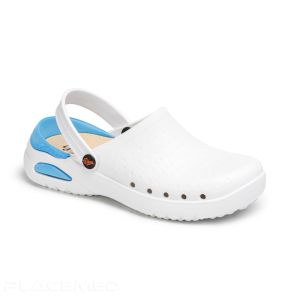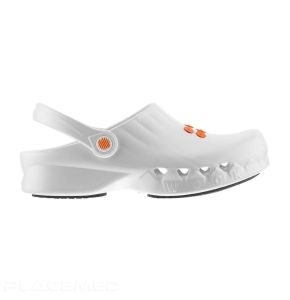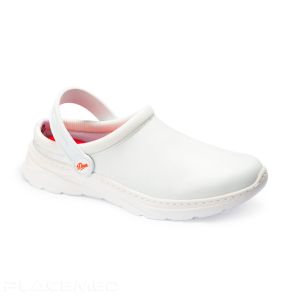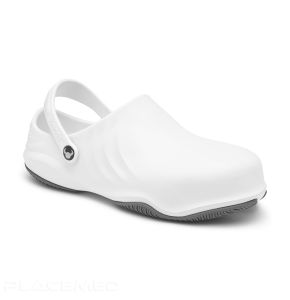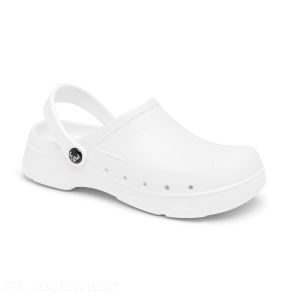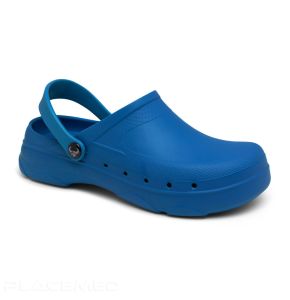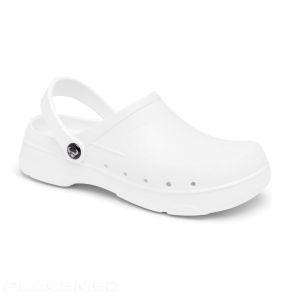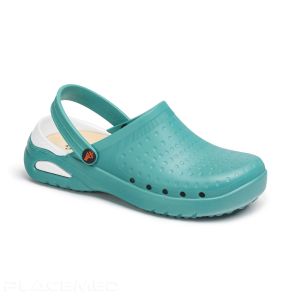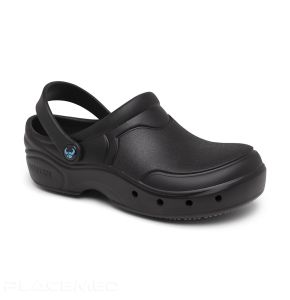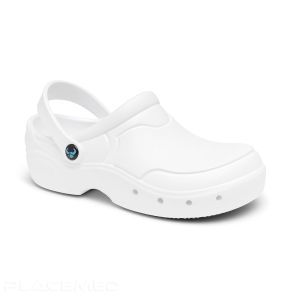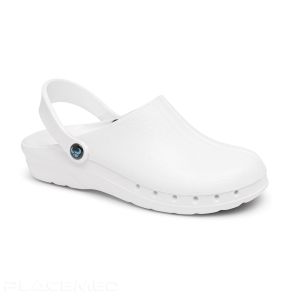Professional Medical Clogs
SC-ODEN-PLUS-PINK
SC-ODEN-PLUS-PRINT-LIV
SC-VIDAR-PLUS-GREEN
SC-THOR-PLUS-ENCLOSED-WHITE
SC-ODEN-PLUS-PRINT-EEA-TCAE
SC-ODEN-PLUS-PRINT-MIDSUMMER
SC-ODEN-PLUS-BLUE
DN-EVA-SOFT-BLANC
DN-02-S-BLEU
WCK-NUBE-PLUS-INSOLE-WHITE
DN-JAVEA-ESTAMPADO-BLANC
Dian Javea Work Clog - White
DN-JAVEA-BLANC
WCK-WAYLITE-PINK
SC-MAGNUS-WHITE
SC-VIDAR-PLUS-ANTSTATIC-WHITE
SC-VIDAR-PLUS-BLUE
SC-VIDAR-PLUS-WHITE
Dian Eva Work Clog - Purple
DN-EVA-VIOLET
DN-EVA-SOFT-VERT
SC-THOR-PLUS-BLACK
SC-THOR-PLUS-WHITE
SC-ODEN-PLUS-ANTISTATIC-WHITE
SC-ODEN-PLUS-PRINT-EEA-ANIMALS
The Medical Clog: The Essential Comfort for Health Professionals
An emblematic and timeless shoe in the world of healthcare, the medical clog is favored by generations of caregivers. Its success is based on fundamental qualities: unparalleled practicality, easy-to-maintain hygiene, and comfort designed for long hours of work. The modern medical clog has evolved, now integrating more technical features for enhanced well-being.
Ease of Use and Hygiene: The Key Strengths of the Clog
The primary advantage of medical clogs is their incredible practicality. They can be put on and taken off in a single motion, a significant advantage when you need to change clothes upon arriving at work or during a night call. Hygiene is their second strong point. Made of smooth, non-porous polymers, they are very easy to clean. A simple rinse under water or a wipe with a disinfectant is enough to remove most stains, ensuring you start each day with an impeccable medical shoe.
The Evolution of Comfort: From Ergonomics to Lightness
Forget the image of the rigid, basic clog. Today's medical clog is a concentrate of technology at the service of your comfort. Innovative materials like EVA or other thermoplastics make it ultra-light, which significantly reduces fatigue throughout the day. The interior is not left behind: many models include an anatomical insole to support the arch, and sometimes even massage nubs that stimulate blood circulation with every step. The pivoting back strap, meanwhile, ensures excellent support when you need it.
Open or Perforated Clog? Choosing the Right Model for the Right Use
The choice of your medical clog's design depends on your work environment and your preferences.
- Perforated clogs: Featuring holes on the top, they offer excellent ventilation. This is the ideal choice if you tend to sweat or if you work in a warm environment.
- Closed clogs: The solid top offers increased protection against falling liquids or small sharp instruments. This type of hospital clog is often mandatory in high-risk medical sectors like operating room clogs.
Evaluate your needs for protection and ventilation to make the best choice.
 Francais
Francais 

